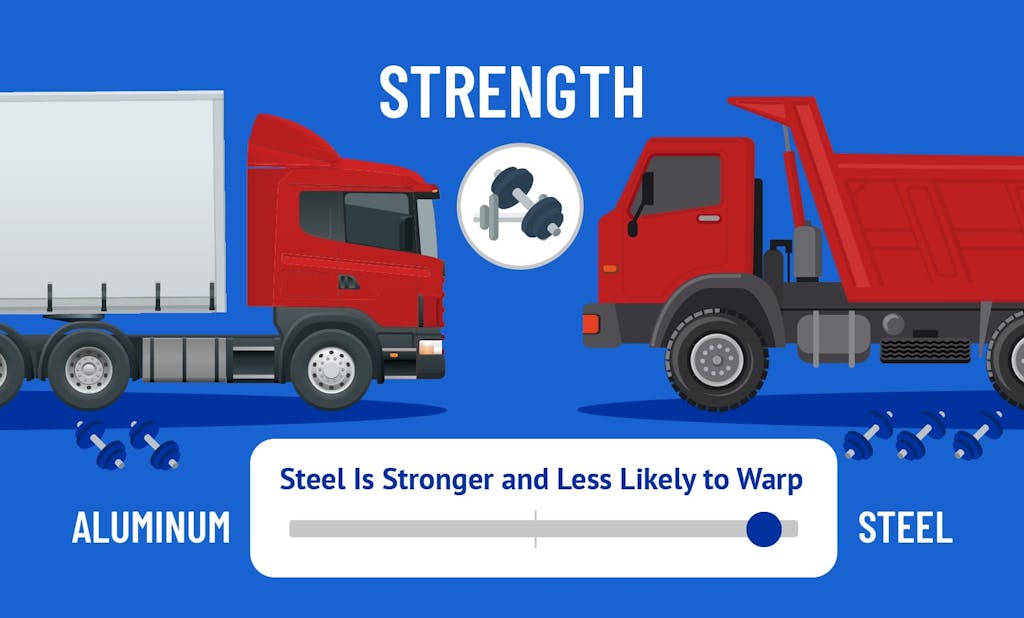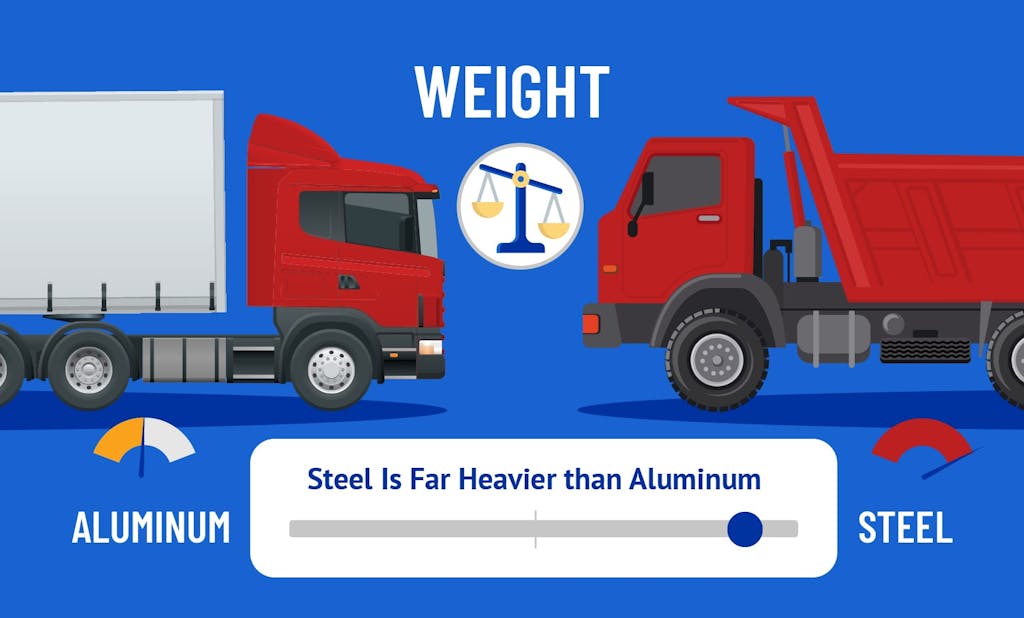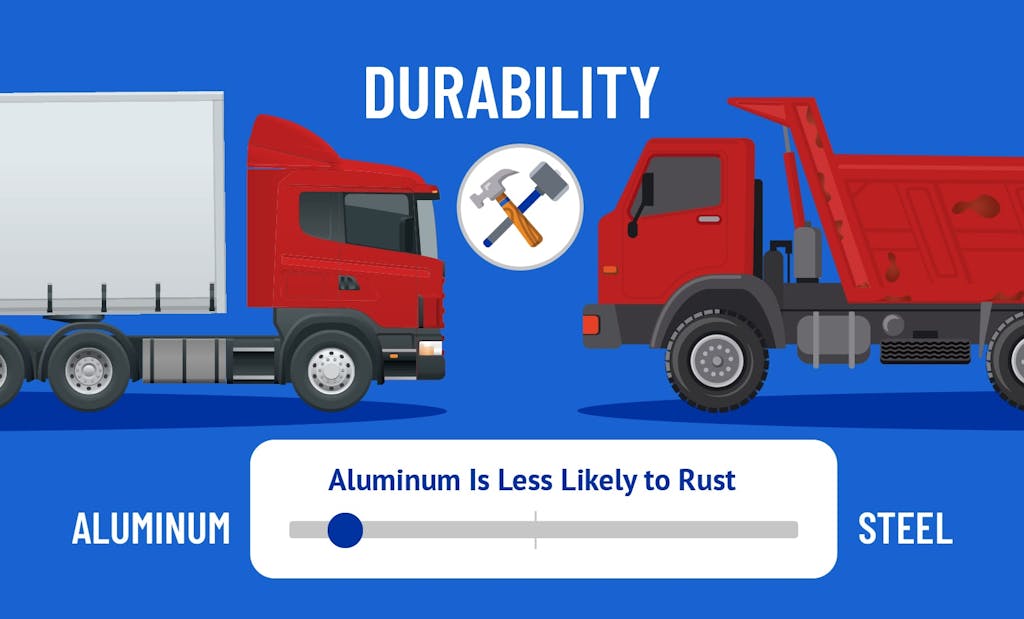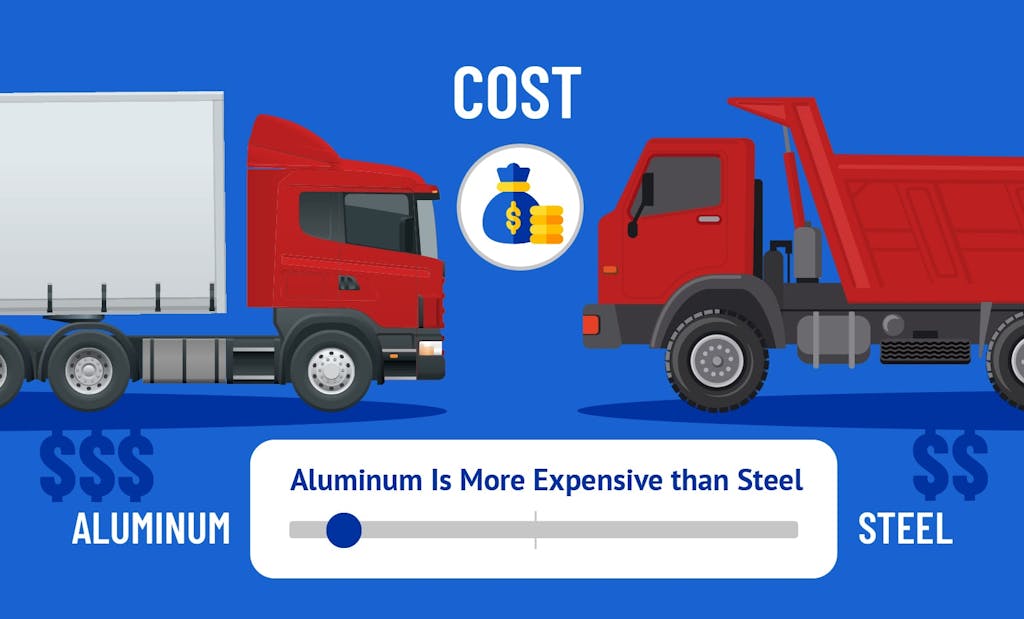How to Choose a Trailer: Aluminum vs. Steel Trailers
May 18th, 2020
When you or your fleet need to haul heavy payloads, your trailer must be durable enough to handle whatever comes your way. That’s why quality steel and aluminum trailers are the most common materials used for commercial trailers.
While both are great options for commercial use, if you’re looking to buy or rent a trailer, you’re probably wondering which type of trailer is the best for the job. If you’re purchasing a trailer, you also want to make sure that the trailer is a worthwhile investment that will last for years to come.
We’re here to help you navigate the process of choosing the right trailer for your needs. Keep reading to learn about aluminum vs. steel trailers, including what they haul, how much they cost, and their durability.
Major Differences Between Steel and Aluminum Trailers
When you go to purchase a trailer, there are so many options: steel dump trailers for sale, aluminum flatbeds for sale, and more. There seems to be a constant question of steel or aluminum. If there are so many of each type on the market, what’s the difference? Here are some key points to consider before you make a decision.
Strength: Steel and Aluminum are Strong

One of the first things people want to know is which type of trailer is stronger: aluminum or steel? While steel is often thought to be stronger, aluminum is quite durable. Both aluminum and steel trailers are considered alloys, meaning they are made up of more than just aluminum or steel. Other metals are used in manufacturing to increase the strength of the trailer structure.
Both types of trailers are considered strong, but steel tends to be more rigid. That rigidity may be beneficial for difficult road conditions where the trailer is not on a flat, smooth surface. Steel trailers are less likely to bend or lose their structure because they are denser. Aluminum trailers may bend more easily but are also more pliable so they can often be repaired if the structure of the trailer gets altered.
Weight: Aluminum is Lighter

When it comes to weight, aluminum trailers are far lighter than steel. This is a major benefit of aluminum because it allows you to carry higher payloads than a steel trailer, but there also other benefits that come with a lighter trailer:
- Fuel economy: lighter trailers will be more efficient
- Truck engine workload: lighter trailers will put less stress on your engine
- Tire longevity: less weight means less wear on your tires
- Bottom line: if you can carry more cargo, you’ll likely be more profitable.
Durability: Corrosion is a Big Deal

Aluminum provides huge benefits when it comes to durability because aluminum trailers are less likely to rust and corrode. That doesn’t mean they don’t corrode at all, but the actual rust, which is a result of how steel alloys react with oxygen, does not occur with aluminum.
Aluminum can still experience forms of corrosion as a result of the aluminum alloy reacting with oxygen, or aluminum oxide, but is less prone to that type of corrosion than a steel trailer is to rust.
This is especially important when considering the weather your trailer will encounter. If rain and snow are common, a steel trailer may experience more corrosion, thus an aluminum trailer may be a better choice, especially for longevity.
Cost: Steel is Less Expensive

Whether it’s a steel flatbed or a steel dump trailer, the bottom line is that steel is cheaper to repair and to purchase. If budget is a major factor, then you may want to consider steel for your next trailer.
Aluminum trailers are more expensive, so if you’re looking for an aluminum walking floor trailer for sale, for example, the initial investment may be more, but it may also last longer. It can also haul more, rivaling steel with its strength. When it comes to aluminum vs. steel trailer maintenance, aluminum is easier because it doesn’t require the rustproofing of steel. Yet, if aluminum trailers need repair, they can be more expensive than steel.
Aluminum vs. Steel Trailers: Which to Choose?
Ultimately, when you’re purchasing a new or used trailer, you have to consider your ROI. Each type of trailer has pros and cons that may or may not affect your business. To help you decide which trailer is a better investment, think about the following:
- How long do you plan to keep the trailer?
- Do you haul the same types of cargo all the time?
- What kind of weather do you drive in?
- What type of terrain do you drive in?
- What’s your budget?
- Do you have on-site maintenance?
There are so many options available when it comes to trailers. Whether you’re looking for an aluminum dump trailer for sale, a steel flatbed trailer for sale, or any other kind of commercial trailer, you’re planning to make a big investment. Let Hale Trailer’s experts help you make an informed decision. Each of our trailer sales locations offers a large inventory of new and used steel and aluminum trailers with helpful representatives that can answer all your questions about steel vs. aluminum trailers. Contact us for questions and details about trailers and locations at 800-232-6535. We look forward to serving you!
All the information on this website – https://www.haletrailer.com – is published in good faith and for general information purposes only. Hale Trailer Brake and Wheel does not make any warranties about the completeness, reliability and accuracy of this information. Any action you take upon the information you find on this website, is strictly at your own risk. Hale Trailer Brake and Wheel will not be liable for any losses and/or damages in connection with the use of our website.
